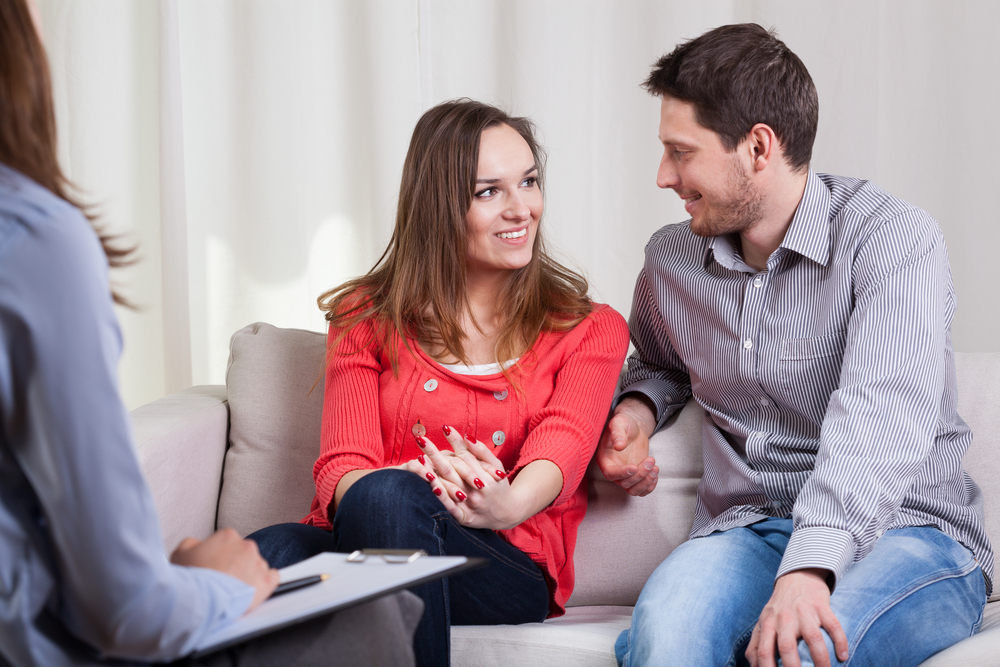

The last few decades of human research have clearly demonstrated to us how inescapably relational and interconnected people are, however, most therapists still primarily work with individuals, most of whom present with serious, persistent problems in their intimate relationships.
Part of the reason is that many clients themselves avoid couples therapy. Sometimes they resist because they aren’t sure if they want to stay in the relationship, they are ambivalent and perhaps hope to get some clarity from seeing a therapist individually.
Sometimes they fear the unpleasant things their partner might say about them or they are scared about how volatile things might get if they raise issues they are unhappy about with their partner present. Sometimes the thought of really talking about what’s not working in their relationship feels too hard and there is not enough safety or trust in their relationship for them to allow themselves to become vulnerable about their hurts in front of their partner.
In contrast, individual therapy seems like a place of emotional safety. Clients want, and usually get, plenty of empathy from their therapist. They don’t have to share this special relationship with anyone else. They have the freedom to work on issues that they select, on their own timetable. If they aren’t ready to deal with a problem, e.g. their betrayal, addiction or just plain bad behaviour, they can simply minimize it, or never bring it up at all.
From the point of view of many therapists, working with couples can just feel too difficult, uncontrollable and scary. When working with an individual, we get to establish a one-on-one relationship that’s usually pretty rewarding for both the client and the therapist. Most of our individual clients feel positive toward us; many express appreciation for our efforts. We get to apply skills that are second nature to us: active listening, understanding, and acceptance. If a misunderstanding or power struggle emerges with a client, there’s usually a far more calm and predictable process of addressing it than when angry spouses square off against each other in our offices.
Couples therapy, as Ellen says, can feel like piloting a helicopter into a hurricane. Initially we might encounter hostility, bitterness, distrust, and rage. This state of affairs can go on for many weeks depending on the issues at hand. Often in these early weeks of couples therapy it feels hopeless for everyone and the therapist can feel very helpless.
The good news is that with the emergence of a few evidenced based approaches to couples therapy over the past 10 years we (therapists) now have some excellent models, tools, strategies and techniques that we know work and make a very positive difference to how couples relate together. One of those approaches is of course Gottman Method Couples Therapy.
Therapists learn how to help couples safely manage conflict and explicitly teach couples skills that they can take home with them. Therapists learn how to help couples process their old and new hurts in deep and connecting ways so that resentment and negativity doesn’t overwhelm their relationship. Therapists learn how to help couples build and maintain their friendship and intimacy systems so that they continuously feel close and connected which in turn build trust and safety into the relationship and down regulates conflict. Therapists learn how to help couples create a deep shared understanding of what their relationship means and what it means to love each other, how to love each other and how to create a meaningful and purposeful life together.
John and Julie Gottman have also developed an evidenced based couples workshop that has outcome data demonstrating that 94% of couples found the skills, knowledge and understanding they gained at the workshop significantly improved their relationship satisfaction and continued to improve it over many months.
So, what’s the moral of the story? Whether you are in a struggling relationship or are a therapist who wants to find better ways to help couples, Gottman Method Couples Therapy might just be the answer.
Please feel free to contact us for more information or with questions about how Gottman Method Couples Therapy or workshops might be of use to you.
